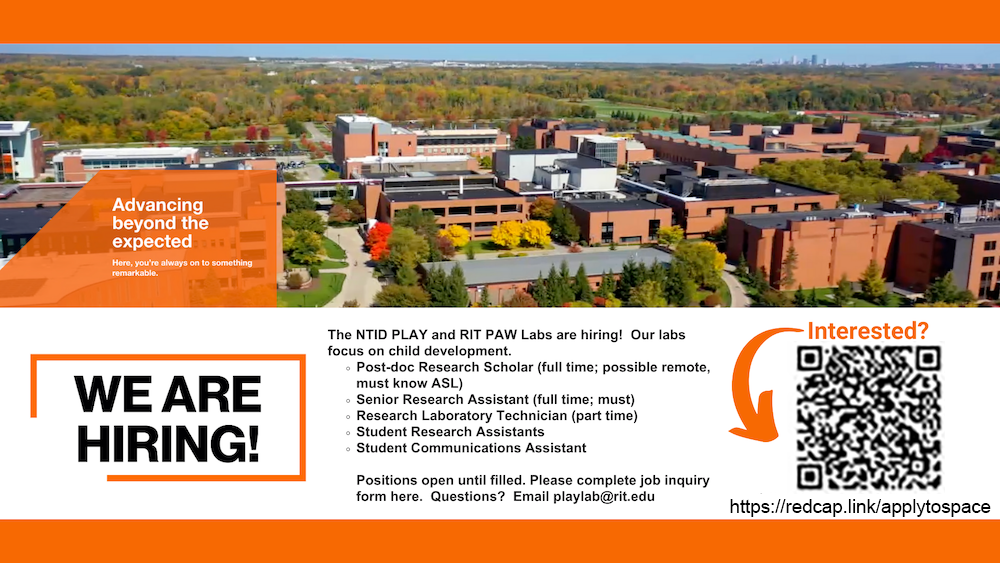Perception, Language and Attention in Youth (PLAY) Lab


PLAY Lab
The newly-founded Perception, Language and Attention in Youth (PLAY) Lab's aim is to understand how early sensory experiences shape our visual, cognitive, and language abilities later in life. We study how deaf and hearing children learn through visual sign language, with the goal of understanding human cognition and learning more broadly. We compare behaviors and abilities of deaf and hearing people -- across all ages -- who use signed or spoken language.
Meet Our Team
Our Founder/Director
Rain Bosworth
Dr. Rain Bosworth is an assistant professor in Department of Liberal Studies at RIT/NTID. She is an experimental psychologist, studying development of perception and language in deaf and hearing children using eye-tracking at the newly-founded Perception, Language and Attention in Youth (PLAY) Lab. She got her PhD from the University of California, San Diego, studying visual motion processing and attention in deaf adults. She is currently investigating gaze behavior in infants and children while they watch stories in American Sign Language (ASL). The broad aim is to understand how early sensory input shapes perception, cognition, and language processing.
Our Research Team
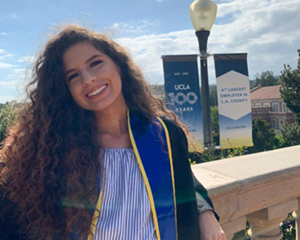 Nicole Taboada is a graduate research assistant working in the NTID PLAY Lab. She received a Bachelor of Arts in Sociology from UCLA in 2020 and is currently working toward a Master’s Degree in Experimental Psychology at RIT. Living and working in academia has only further developed her strong passion for advocacy, research, and deaf education. She hopes to see more Deaf researchers in the coming years and is eager to play her part in reaching that goal. Outside of academia, you can find Nicole playing Tetris on her Nintendo Switch or hanging out with her (5 year old) puppy, Teddy.
Nicole Taboada is a graduate research assistant working in the NTID PLAY Lab. She received a Bachelor of Arts in Sociology from UCLA in 2020 and is currently working toward a Master’s Degree in Experimental Psychology at RIT. Living and working in academia has only further developed her strong passion for advocacy, research, and deaf education. She hopes to see more Deaf researchers in the coming years and is eager to play her part in reaching that goal. Outside of academia, you can find Nicole playing Tetris on her Nintendo Switch or hanging out with her (5 year old) puppy, Teddy.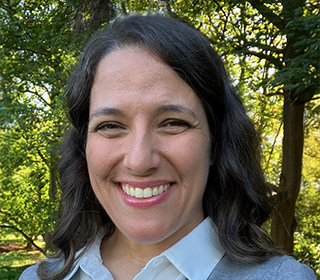 Jessica Wages is the Communications & Outreach Coordinator for the NTID PLAY Lab. Jessica has a bachelor’s degree in Graphic Media Publishing from RIT and an associate’s degree in Art and Computer Design (now Visual Communications Studies) from NTID. She has over 20 years of experience and education in the Graphic Arts field, last job as an Art Director for a custom apparel & promotional products company based in San Diego, California. She also has 10 years of experience in outreach events. Jessica also serves on the Board as their Website Coordinator for Deaf Women of Rochester. Her passion is working with children and people! She enjoys reading during her rare free time and spending time with her husband and 7-year-old KODA.
Jessica Wages is the Communications & Outreach Coordinator for the NTID PLAY Lab. Jessica has a bachelor’s degree in Graphic Media Publishing from RIT and an associate’s degree in Art and Computer Design (now Visual Communications Studies) from NTID. She has over 20 years of experience and education in the Graphic Arts field, last job as an Art Director for a custom apparel & promotional products company based in San Diego, California. She also has 10 years of experience in outreach events. Jessica also serves on the Board as their Website Coordinator for Deaf Women of Rochester. Her passion is working with children and people! She enjoys reading during her rare free time and spending time with her husband and 7-year-old KODA.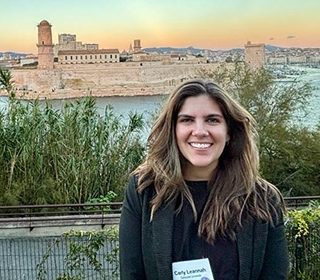 Dr. Carly Leannah is a postdoctoral research fellow with the NTID PLAY Lab investigating how the experiences of being deaf and using a signed language shape learning processes and cognitive development. After earning her PhD in Educational Neuroscience from Gallaudet University in 2024, she builds on her RIT foundation (BS Psychology '12, Secondary Education for the Deaf/HoH '15) to examine children's exploratory behaviors in museum settings. Her research bridges neuroscience, education, and deaf studies, with particular focus on how embodied cognition and educational technologies can enhance STEM learning opportunities for deaf students. As both a deaf scientist and former educator, Dr. Leannah brings unique insights to her work examining how sensory experiences influence discovery and learning processes. Beyond the laboratory, she recharges by traveling to new destinations, camping under open skies, and relaxing with a good book in the company of her cats.
Dr. Carly Leannah is a postdoctoral research fellow with the NTID PLAY Lab investigating how the experiences of being deaf and using a signed language shape learning processes and cognitive development. After earning her PhD in Educational Neuroscience from Gallaudet University in 2024, she builds on her RIT foundation (BS Psychology '12, Secondary Education for the Deaf/HoH '15) to examine children's exploratory behaviors in museum settings. Her research bridges neuroscience, education, and deaf studies, with particular focus on how embodied cognition and educational technologies can enhance STEM learning opportunities for deaf students. As both a deaf scientist and former educator, Dr. Leannah brings unique insights to her work examining how sensory experiences influence discovery and learning processes. Beyond the laboratory, she recharges by traveling to new destinations, camping under open skies, and relaxing with a good book in the company of her cats. 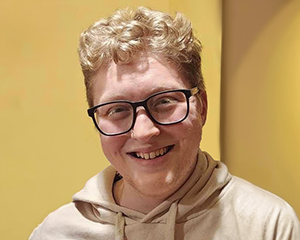 Finn Cohen is a full-time staff Research Assistant working in the NTID PLAY Lab. He grew up in Cleveland, Ohio and graduated with his B.S. in Psychology from RIT in the spring of 2024. In his studies, Finn focused on the clinical and biological areas of psychology and was involved in research throughout his academic career. He is especially interested in working with youth. He is excited about conducting research with a diverse group of children, both hearing and d/Deaf, to help reduce the disparities these groups face. Outside of work, Finn spends his time playing board games, watching movies, and cuddling with his cat, Basal.
Finn Cohen is a full-time staff Research Assistant working in the NTID PLAY Lab. He grew up in Cleveland, Ohio and graduated with his B.S. in Psychology from RIT in the spring of 2024. In his studies, Finn focused on the clinical and biological areas of psychology and was involved in research throughout his academic career. He is especially interested in working with youth. He is excited about conducting research with a diverse group of children, both hearing and d/Deaf, to help reduce the disparities these groups face. Outside of work, Finn spends his time playing board games, watching movies, and cuddling with his cat, Basal.Our Collaborators
Play Lab Alumni
| Name | Major | Terms Worked |
|---|---|---|
| Nick Despins | Biomedical Engineering and Exercise Science | Spring 2024 |
| Olivia Borkowski | ASL Interpreting | Summer 2023 |
| Adrita Arefin | MS in Human-Computer Interaction | 2021-22 & 2023-24 |
Join Our Lab
We are recruiting postdocs, staff, graduate students, and undergraduates! Coming together from a wide variety of backgrounds, our team members are the backbone of PLAY Lab. Their ideas bring diverse ideas to help shape the direction and mission of our research. Read on to learn more about how you can get involved.
More information and how to apply
Open Positions
The NTID PLAY and RIT PAW Labs are hiring! Our labs focus on child development.
- Post-doc Research Scholar (full time; possible remote, must know ASL)
- Senior Research Assistant (full time; must)
- Research Laboratory Technician (part time)
- Student Research Assistants
- Student Communications Assistant
Positions open until filled.
Please complete job inquiry form here: https://redcap.link/applytospace
Questions? Email playlab@rit.edu
PhD Graduate Students
RIT’s Cognitive Science Ph.D. provides an interdisciplinary study of the human mind that combines insights from psychology, computer science, linguistics, neuroscience, augmented reality, and philosophy. Inquire for more information.
NSF Research Traineeship
Graduate students from associated RIT Ph.D. and MS programs are invited to review information on how to apply and benefits for Trainees at our NSF Research Traineeship website. Women, Deaf or Hard-of-Hearing, and African American, Latino/a American, or Native American students are especially encouraged to apply. A video describing the program in ASL is available here.
Earn Pay or Course Credit as an Undergraduate Research Assistant in the Lab
Undergraduate students can receive pay or course credit working on research projects in the SPaCE Center. The Center is made up of several labs, including deaf x lab, NTID PLAY Lab, PAW Lab, and RITE Lab. This opportunity provides exposure to a variety of methods used in psychological research, including behavioral experiments (measuring response time and accuracy), eye tracking, EEG, and observational studies. This is ideal for NTID or RIT students majoring in psychology, cognitive science, language sciences, or computer science. Graduate students are also encouraged to apply using this form. Click here to complete an online form to apply.
News
'Brainy Day' spreads education on the deaf community through play
October 14, 2023
The National Technical Institute for the Deaf’s “Brainy Day” community event in Rochester highlighted the fun in learning for children and their families. The event not only showed children the support they have, but also the community they have.
-
April 29, 2024

Rain Bosworth studies how deaf children experience the world
ScienceNews talks to Rain Bosworth, associate professor in the Department of Liberal Studies, about her research.
-
August 7, 2023

Deaf children’s learning during museum experiences is focus of research study
New research exploring how deaf and hearing preschool-aged children learn through interactive play with their parents is the focus of a partnership between RIT’s National Technical Institute for the Deaf and The Strong National Museum of Play.
-
May 9, 2022

New lab studies cognitive development in children
Rain Bosworth, an assistant professor and experimental psychologist at RIT’s National Technical Institute for the Deaf, has created a new research lab that will help scientists learn more about cognition, language, and perception in infants and young children.
-
November 1, 2024
Bosworth research on sign-language acquisition cited
-
December 7, 2023
Bosworth presents on ableist sampling in psychology research
-
August 17, 2022
NTID SPaCE Center researchers to present at conference
-
August 4, 2022
Bosworth presents at gesture studies conference
Publications
Please also see my Google Scholar or ResearchGate profiles for PDFs.
Bosworth, R.G., Hwang S.O., & Corina, D.P. (2022). Visual Attention for Linguistic and Non-Linguistic Body Actions in Non-signing and Native Signing Children. Frontiers in Psychology, 4799. (video abstract)
Bosworth, R.G., Tyler, S.C., Binder, E.M. & Morford, J.P. (2021). Automaticity of lexical access in deaf and hearing bilinguals: Cross-linguistic evidence from the color Stroop task across five languages. Cognition, 212, 104659. (video)
Bosworth, R.G. & Stone, A. (2021). Rapid Development of Perceptual Gaze Control in Native Signing Infants and Children. Developmental Science, doi:10.1111/desc.13086.
Bosworth, R.G., Stone, A., & Hwang S.-O. (2020). Effects of Video Reversal on Gaze Patterns during Signed Narrative Comprehension, Journal of Deaf Studies and Deaf Education, 25(3). 283–297.
Bosworth, R.G., Wright, C.E., & Dobkins, K.R. (2019). Analysis of the visual spatiotemporal properties of American Sign Language. Vision Research, 164, 34-43.
Stone, A. & Bosworth, R.G. (2019) Exploring Infant Sensitivity to Visual Language using Eye Tracking and the Preferential Looking Paradigm. Journal of Visualized Experiments (JoVE), 147, e59581.
Stone, A., Petitto, L.A., & Bosworth, R.G. (2017). Visual sonority modulates infants’ attraction to sign language. Language Learning and Development, 14(2):130-148.
Blumenthal E., Bosworth R.G., & Dobkins K.R. (2013). Fast Development of Global Motion Processing in Human Infants. Journal of Vision, 13(13) article 8.
Bosworth, R.G., Robbins, S.L., Granet, D.B. & Dobkins, K.R. (2013). Delayed luminance and chromatic contrast sensitivity in infants with Retinopathy of Prematurity. Documenta Ophthalmologica, 127(1), 57-68.
Bosworth, R.G., Petrich, J.A.F., & Dobkins, K.R. (2013). Effects of attention and laterality on motion and orientation discrimination in deaf signers. Brain & Cognition, 82(1), 117-126.
Bosworth, R.G. & Dobkins, K.R. (2013). Effects of prematurity on the development of contrast sensitivity: Testing the visual experience hypothesis. Vision Research, 82(19), 31-41.
Bosworth, R.G., Petrich, J.A.F. & Dobkins K.R. (2012). Effects of spatial attention on motion discrimination are greater in the left than right visual field. Vision Research, 52(1), 11-19.
Bosworth, R.G. & Emmorey, K. (2010). Effects of iconicity and semantic relatedness on lexical access in American Sign Language. Journal of Experimental Psychology, 36(6), 1573-81.
Bosworth, R.G. & Dobkins, K.R. (2009). Chromatic and luminance contrast sensitivity in fullterm and preterm infants. Journal of Vision, 9(13), 15, 1-16.
Dobkins, K.R., Bosworth, R.G., & McCleery, J. (2009). Effects of gestational length, gender, postnatal age, and birth order on visual contrast sensitivity in infants. Journal of Vision, 9(10), 19, 1-21.
Emmorey, K., Bosworth, R.G., & Kraljic, T. (2009). Visual feedback and self-monitoring of sign language. Journal of Memory and Language, 61, 398-411.
Donations
The PLAY Lab is a critical resource in building a better understanding of how early sensory experiences shape our children’s visual, cognitive, and language abilities later in life. A major portion of our research focuses on the development and support of Deaf/Hard-of-Hearing children. While we are fortunate to have received support for our research, there is an ongoing need for general operating support of the Lab. Funding to maintain equipment, employ research assistants, support travel to conferences, and more, is critical in facilitating our work and in disseminating all that we will learn. If you are interested in supporting the PLAY Lab, please contact Bryan Hensel, NTID Office of External Affairs, at Bryan.Hensel@rit.edu or at (585) 475-6222. Thank you for your generosity.
For study and
research info,
email:
playlab@rit.edu

















